A Space for Youth To Have Fun—And Be Heard
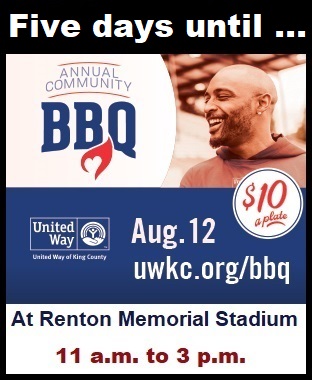
At our Second Annual Community BBQ, United Way of King County will feature the Kickback, an area exclusively for teens that was designed with input and suggestions from local youth.
Our listening session with the youth—including a couple who attended last year’s BBQ—revealed that they wanted not only games, activities, and pulsating music but a space to discuss some of their most pressing issues.
Those issues include conversations about their futures (College? Workforce? Military?), concerns about the city’s homelessness crisis, and the social/emotional pressures that teens encounter every day.
For the latter, United Way has enlisted Daicia Mestas, a mental health counselor at the Burien-based nonprofit CHOOSE 180, which transforms young people’s lives by partnering them with institutional leaders and empowering them with choices to change. Mestas is certified in expressive arts therapy and uses arts in counseling, particularly when words don’t work.
United Way sat down with Mestas to talk about her own experiences growing up that inspired her to help empower youth through counseling.
United Way of King County: Tell us a little about you.
Daicia Mestas: I was born in Farmington, New Mexico, a small town in the Four Corners area. I lived there until about nine years ago when I moved up here to Washington. When I was younger, I was getting into trouble at school, and my parents sent me to a boot camp for teenagers, a place to send away kids who get into trouble.
And my therapist actually recommended this to them because they felt nothing was working with me. I ended up being incarcerated after that because I was still getting into trouble and my parents were calling the cops on me to run away. I was in a youth juvenile jail for violating my probation. My childhood was really rebellious. I wanted to do everything on my own.
That’s what really got me into social work. I got through high school, and I really didn’t know what I wanted to do, but I took a sociology class and I really was interested in the way our minds work and the way society works. So, I said, “Maybe I should be a teacher.” So, I talked to other teachers, and they told me, “I really wished I had gotten into social work because there are a lot of youth that we teach that we can’t really help or do anything for.” I went to college and got my degree in social work at New Mexico Highlands University. At that time, I worked at a middle school and a high school with kids having trouble in school.
United Way of King County: And then you moved to this area?
Daicia Mestas: Yes, and then I got into trouble as soon as I moved up here in the first three months. And I didn’t get into graduate school at the University of Washington, which was the reason I moved up here. I was going to give up. It was a really bad time for me. But I stuck it out, I reapplied, and I got in. I graduated from UW with a master’s degree in social work, and I did my internship here at CHOOSE 180. I helped them with the in-person workshops that we used to do. When I graduated, I was hired to be CHOOSE 180’s first workshop coordinator.
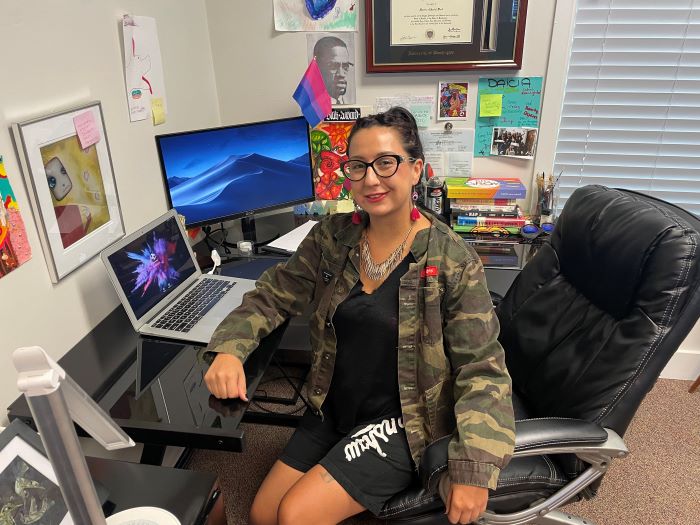
United Way of King County: How do your lived experiences affect your ability to connect with young people?
Daicia Mestas: I feel like the reason I do this is because I was at a place, when I was a teenager, where I felt really alone. I felt like no adults in my life really understood me. They would mostly be talking at me. And I see that still happening today [with youth]. What I am trying to do when I’m interacting with youth is be a space where they can say what they want without being judged. I’m not really talking about them; I’m receptive to the conversation and letting them vent.
I think it’s really hard to be a parent because parents want the best for their kids, but they don’t really listen to what the kids want. Parents know they have more experience, but kids just want to be heard. And I’m not a parent, so I asked a co-worker, who has been a youth counselor longer than I, “How do I talk to these parents if I’ve never been a parent?” And he told me, “Just encourage the parents to actively listen to the kids and not make up rules without allowing their kids to have their input and opinion of what’s going on with them.”
United Way of King County: Tell us more about working in this space. What was your first year like?
Daicia Mestas: During my very first year, I felt really inspired and energetic from working with this organization. It was something I never saw when I was a youth. Back then, if you got in trouble, you were wrong. People told you, “You need to do this so you can get your life together.” This organization was seeing the person and saying, “You’re not these bad things you did; you are so much more than that.”
My first year was soaking all that in and reliving my trauma as a youth. It was something I really needed back then and I saw it in this organization. I saw co-workers who had been in this work for 10-20 years. So, I was just really trying to work and I grew a lot. But it also comes with hard moments.
United Way of King County: What were some of those hard moments?
Daicia Mestas: Like when one of our youths passes away. The first year we did a summer internship, we tried to offer our internship to one of the youths in the area, but at the time we didn’t have a way to pay undocumented youth. Three months later, he was murdered. And someone else from our program passed away recently. Stuff like that, no amount of schooling can prepare you for. For those of us who work with youth, it pays to have similar backgrounds as them. How can you even talk to someone about that if you haven’t been through that yourself?
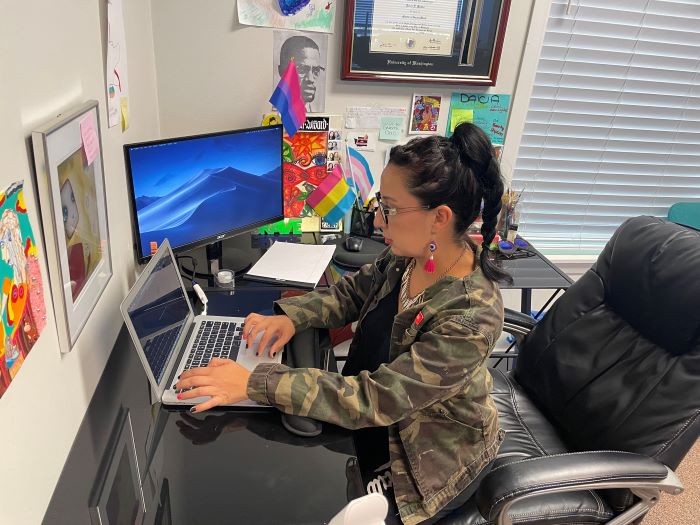
United Way of King County: Yet, you have worked with youth across many backgrounds, races, genders, classes, and locations, correct?
Daicia Mestas: Correct.
United Way of King County: Are there a few things that you’ve seen in youth regardless of where they come from?
Daicia Mestas: There are a few things. I know someone who lives in Sammamish who has a lot of things given to her, and I work with youth who don’t have parents. But one thing I see is that they all are growing into who they are. They have so much pressure from their peers and social media. That is one thing I see universally, being able to be okay with who they are and not trying to be something else. They struggle with that.
United Way of King County: When it becomes challenging to make connections with youth, what do you do?
Daicia Mestas: That’s where the art comes in—it’s a way for someone who doesn’t want to talk or share something personal, if they don’t trust you, to put it onto paper. I’ve sat in sessions where we sat in silence or with music on and then they would create something, without talking the whole time. And then they would say, “This is what’s going on right now.” I couldn’t do counseling without the art part. It’s something anyone can do. Historically we use art and music to heal. I really believe in it.
I’ve sat in sessions where we sat in silence or with music on and then they would create something, without talking the whole time. And then they would say, “This is what’s going on right now.”
Daicia Mestas, CHOOSE 180 mental health counselor
United Way of King County: What would you say to teens coming to the BBQ’s Kickback who want to talk about the issues young people are facing?
Daicia Mestas: Some of the youth I talk to express that as they get older, they find themselves conforming more to what others want around them. I would tell them to be who they are at this moment. Learn from it in a way that you don’t have to judge the way you’re feeling or be something for someone else. Self-empowerment and finding a good support system are important.

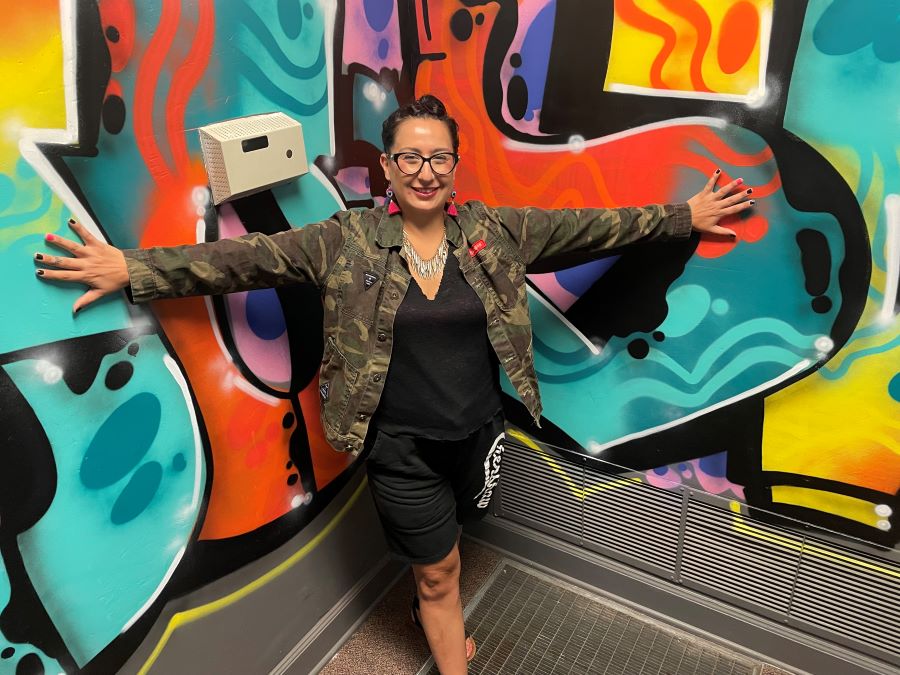
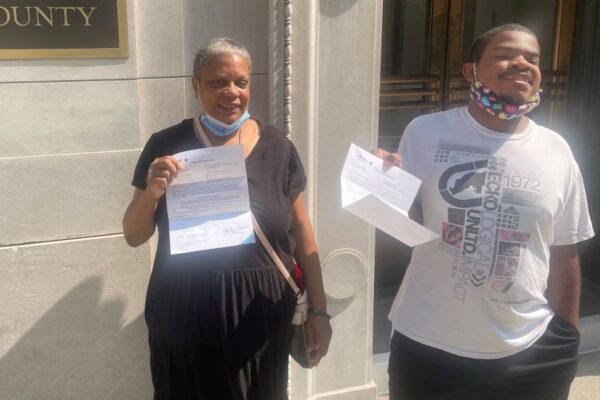
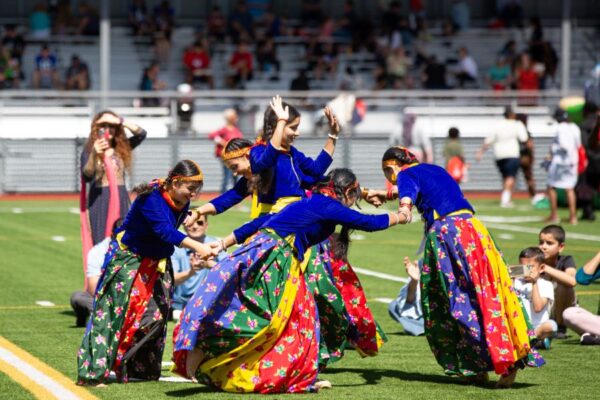
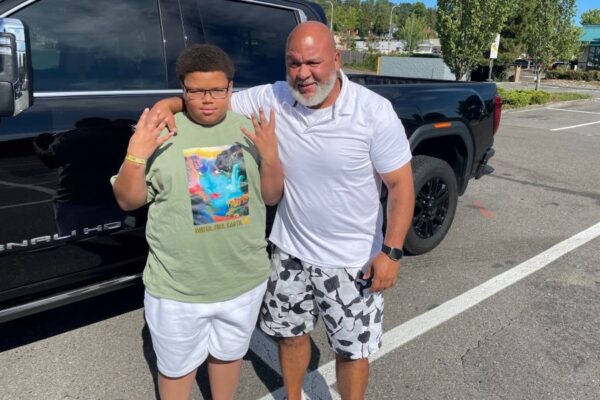
Comments